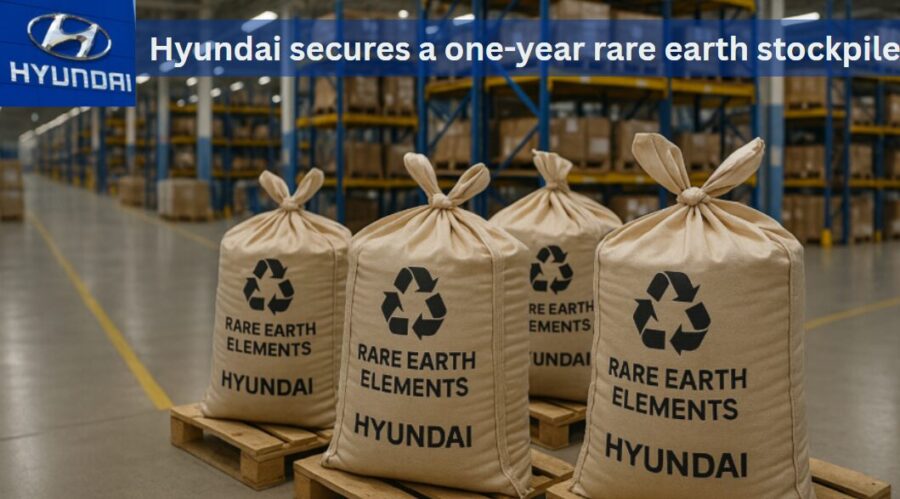Overview:
- One-Year Rare Earth Stockpile Secured:
Hyundai and Kia have built up a rare earth reserve to support production for approximately 12 months, mitigating supply chain shocks due to China’s export regulations. - Outpacing Rivals in Preparedness:
While automakers like Ford and BMW are experiencing disruptions, Hyundai’s strategic inventory and sourcing diversification offer a clear competitive edge. - Benefit from Temporary Relaxation:
Hyundai leveraged a brief window when China slightly eased restrictions to strengthen its stockpile—an indication of agile procurement foresight. - Maintaining Operational Stability:
With rare earths crucial for EV motor manufacturing, Hyundai ensures continuity in producing both electric and hybrid vehicles through localized sourcing and global supply network fortification.
Introduction:
In the midst of escalating global supply chain concerns driven by China’s rare earth export restrictions, Hyundai Motor Group has emerged as a strategic forerunner. The South Korean auto giant has confirmed it holds enough rare earths and magnet stock to keep its electric and hybrid vehicle production running uninterrupted for up to a year. This well-timed preparation, coupled with diversified procurement strategies, shields Hyundai from the immediate impact others in the industry are beginning to feel.
Hyundai vs. Industry Amid Rare Earth Restrictions
| Aspect | Hyundai Motor Group | Competitors |
|---|---|---|
| Rare Earth Inventory | ~1 Year | Unconfirmed |
| Procurement Strategy | Diversified & Pre-emptive | Reactive |
| Impact of China Export Curbs | None (Short-Term) | Disruptions & Delays |
| Market Response | Stable Production | Production Adjustments |
| EV/Hybrid Manufacturing Risk | Low | Medium to High |
From China to Korea: How Hyundai Built a Rare Earth Safety Net
China’s dominance in rare earth production—nearly 90% of the global supply—has long been a strategic concern for industries relying on high-efficiency electric motors, including EV manufacturers. In April 2025, the Chinese government tightened export controls over these critical minerals, triggering a wave of uncertainty and production setbacks globally.
Hyundai Motor Group, however, appears unfazed. According to insiders who attended a private investor call, the company disclosed its fortified inventory strategy that included stockpiling rare earth magnets crucial for EVs and hybrids. This revelation points to Hyundai’s robust internal risk management and proactive supply chain diversification.
By securing supplies during a brief phase when China had relaxed restrictions and localizing procurement efforts, Hyundai has created significant operational buffer. While many rivals scramble for alternatives or delay production, Hyundai remains well-positioned to maintain its global EV push—including the rollouts of the Creta EV and other upcoming models.
The company’s approach is not just about quantity but timing and agility. The ability to act swiftly during temporary geopolitical openings, while keeping supplier relationships intact, gives Hyundai a unique edge in a volatile market.
Conclusion:
Hyundai’s strategic foresight and calculated stockpiling of rare earth materials highlight its leadership not only in EV innovation but also in global supply chain intelligence. While others grapple with the ripple effects of China’s restrictions, Hyundai stands resilient, ensuring consumers continue to receive uninterrupted innovation on wheels. In a fast-electrifying auto industry, preparedness like this isn’t just smart—it’s essential.

